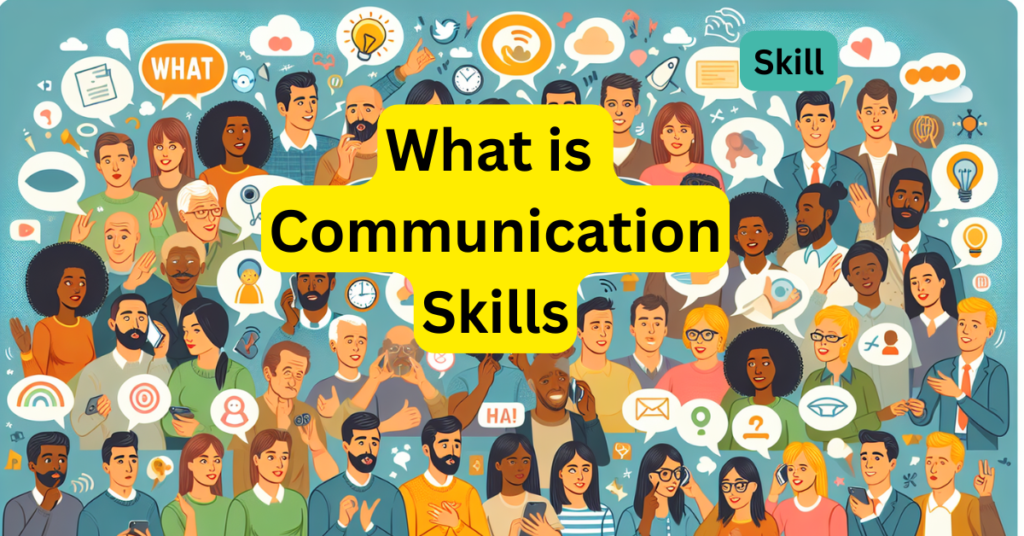What are Communication Skills?
Communication is an essential part of our daily lives. Every conversation we have, whether in person, over the phone, or through email, relies on our ability to communicate effectively. But what exactly are communication skills? In this blog post, we will explore the various aspects of communication skills, why they are important, and how you can improve them.
Defining Communication Skills
At its core, communication skills refer to the ability to convey information, ideas, and feelings effectively. These skills can be divided into several components:
- Verbal Communication: This includes the spoken words we use during conversations.
- Non-Verbal Communication: This consists of body language, facial expressions, and gestures that convey messages without words.
- Listening Skills: Good communication relies heavily on being able to listen and understand others.
- Written Communication: This involves crafting your messages clearly and effectively in writing.
Why Are Communication Skills Important?
Having strong communication skills can greatly affect various areas of your life, including:
- Personal Relationships: Communication fosters connection and understanding between individuals, helping to build trust and intimacy.
- Professional Growth: In the workplace, effective communication can lead to better collaboration, clearer expectations, and fewer misunderstandings.
- Conflict Resolution: Good communication helps to address and resolve conflicts, creating a more harmonious environment.
- Leadership Qualities: Great leaders need excellent communication skills to inspire and motivate their teams.
The Components of Effective Communication Skills
To develop your communication skills, it’s important to understand the different components involved:
1. Active Listening
Active listening is more than just hearing words; it’s about understanding the message being conveyed. Here’s how to practice active listening:
- Give full attention to the speaker.
- Show that you are listening through nodding and appropriate facial expressions.
- Provide feedback by paraphrasing what the speaker said.
- Avoid interrupting the speaker during their talk.
2. Clarity and Conciseness
Being clear and concise in your conversations is key. Aim for these tips:
- Use simple language and avoid jargon when possible.
- Be direct and to the point.
- Organize your thoughts before speaking or writing.
3. Non-Verbal Communication
Your body language can say much more than words. Pay attention to:
- Eye contact – it conveys confidence and interest.
- Facial expressions – they should match your message.
- Posture – open and relaxed posture encourages conversation.
4. Empathy
Empathy is the ability to understand and share the feelings of another person. It can enhance communication by:
- Helping you respond appropriately to others’ emotions.
- Creating a supportive environment where others feel comfortable sharing.
5. Feedback
Giving and receiving feedback is crucial. Here’s how to do it effectively:
- Offer constructive criticism and praise when it is due.
- Ask for feedback on your communication skills from trusted individuals.
How to Improve Your Communication Skills
Improving your communication skills is a continuous journey. Here are some practical tips to help you enhance these skills:
- Practice Regularly: Engage in conversations every day, whether at work or with friends and family.
- Read and Write: Reading can enhance your vocabulary, while writing helps clarify your thoughts.
- Join Groups: Consider joining public speaking or communication workshops to practice in a structured environment.
- Observe Others: Pay attention to effective communicators around you and learn from their techniques.
Common Barriers to Effective Communication
Everyone faces challenges in communication. Recognizing these barriers can help you overcome them:
- Language Differences: Misunderstandings can arise when speaking different languages or using technical jargon.
- Emotional Barriers: Stress, anger, or frustration can cloud your ability to communicate clearly.
- Physical Barriers: Noise, distance, or distractions can inhibit effective communication.
Conclusion
In conclusion, communication skills play a vital role in both our personal and professional lives. By understanding the key components of effective communication, recognizing the value of these skills, and actively seeking ways to improve, you can enhance your ability to connect with others. Remember, communication is not just about speaking; it’s about understanding and being understood. Start practicing these skills today to build stronger relationships and achieve your goals.


